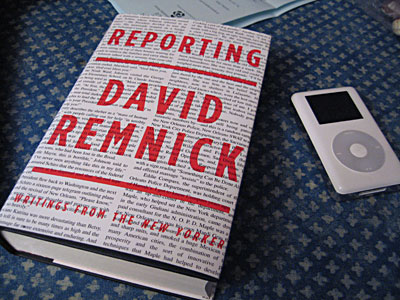From Rough Type: Nicholas Carr’s Blog…
Last week, CNET’s Elinor Mills reported on how a web search for “Martin Luther King” returns, as its first result on Google and as its second result on Windows Live Search, a web site (martinlutherking.org) operated by a white supremacist organization named Stormfront. The site, titled “Martin Luther King Jr.: A True Historical Examination,” refers to King as “The Beast” and says he was “just a sexual degenerate, an America-hating Communist, and a criminal betrayer of even the interests of his own people.” The site also features an essay on “Jews & Civil Rights” by former Ku Klux Klan official David Duke.
What’s remarkable, though, is not that a search algorithm might be gamed by extremists but that the owners of the algorithm might themselves defend the offensive result – and reject any attempt to override it as an assault on the “integrity” of their system….
Carr goes on to quote Google’s response to the CNET story:
At Google, a Web site’s ranking is determined by computer algorithms using thousands of factors to calculate a page’s relevance to any given query, a company representative said. The company can’t tweak the results because of that automation and the need to maintain the integrity of the results, she said. “In this particular example, the page is relevant to the query and many people have linked to it, giving it more PageRank than some of the other pages. These two factors contribute to its ranking.”
Microsoft’s response was even more robust:
The results on Microsoft’s search engine are “not an endorsement, in any way, of the viewpoints held by the owners of that content,” said Justin Osmer, senior product manager for Windows Live Search. “The ranking of our results is done in an automated manner through our algorithm which can sometimes lead to unexpected results,” he said. “We always work to maintain the integrity of our results to ensure that they are not editorialized.”
To which Carr tartly responds:
By “editorialized” he seems to mean “subjected to the exercise of human judgment.” And human judgment, it seems, is an unfit substitute for the mindless, automated calculations of an algorithm. We are not worthy to question the machine we have made. It is so pure that even its corruption is a sign of its integrity.




